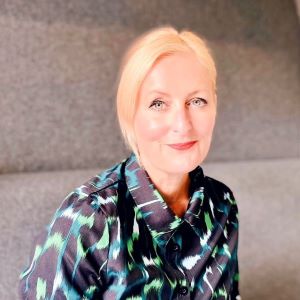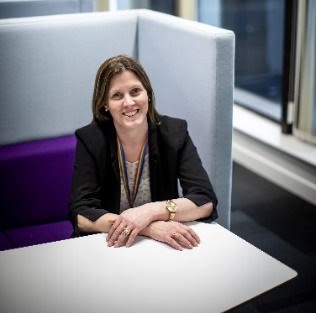The commercial side of the civil service has traditionally been a male-dominated environment. So how can the sector learn from the experiences of its female leaders and positively impact the lives of women across the civil service?
We sat down with Melinda Johnson, commercial director at the Department of Health and Social Care (DHSC) and Sam Ulyatt, chief commercial officer at the Home Office to learn more.
Johnson and Ulyatt bring decades of experience to their current roles within the civil service and are both Fellows in the Chartered Institute of Procurement and Supply. Both have worked in the private and public sector, having worked at internationally renowned companies. Four key themes emerged from our conversation to help women reach their potential in the workplace – education, culture, mindset, and attracting and retaining talent.
Let’s dive in.
Offer opportunities for learning
Johnson and Ulyatt both feel passionate that education is key to success. Both had similar experiences, entering the commercial sector via apprenticeships and training programmes rather than more traditional routes.
“I came from a place where people didn't really understand the link between education, aspiration and ambition, and being able to get on,” Johnson says. She started her life in commercial as a junior buyer in a small firm where her talent was spotted, and she was sponsored to join the BT procurement training programme.
She has been committed to learning throughout her career and after spending some time in the world of work, she gained a qualification with the Chartered Institute of Procurement and Supply (CIPS) followed by a Master of Business Administration (MBA) and a postgraduate degree in Marketing.
Ulyatt secured an apprenticeship which enabled her to study while learning. This was the first time she encountered a predominantly male environment, which was reflected in the culture around the company. “The majority of people I grew up with in my working relationships were men. I was often the only woman, and it was quite hard being heard.” she explains. “I learned how to handle myself.”
Johnson added that she recalls being the only female commercial director in a government department and how she set her stall out to alter that by supporting other women coming up through the profession.

Above: Melinda Johnson
For Johnson and Ulyatt, having a growth mindset and being willing to learn continuously have been central to their career progression, as has their willingness to take on challenging roles.
“I’m really keen to encourage young women into a commercial profession because, if you’re inquisitive and you’ve got a hunger for learning, commercial is the place for you,” Ulyatt states. Johnson adds that she’s “always been a lifelong learner” and underlines the importance of continual personal growth and improvement. Melinda added ‘it’s not just about courses, but about trying new roles – for example, I was director of property, and IT for a few years as well as commercial.

Above: Sam Ulyatt
Both advocate that, to succeed, women – and men – need to allow time for self-reflection. Ulyatt remembers her days as an apprentice and draws on those early experiences to ensure that her apprentices now have space to grow.
“I’m very conscious of getting away from a hierarchy model and enabling far more empowerment,” she says. “I want to get people to do things on their own, and a lot of that comes back to being an apprentice, because that’s where you learn the fundamentals. I have 17 apprentices now, and that’s a delight!”
Create supportive networks
For women to reach their full potential, they must have support both internally and externally. Allyship is key. Ulyatt has led gender equality initiatives in previous roles after experiencing a particularly negative workplace. “It made me realise that being in the right environment with the right leaders is really, really important,” she said. “I believe in equality for all levels, and it is not about women versus men; it’s about who is the best person for the job. Some of my best bosses have been men who have promoted, supported, championed, and sponsored women.” Johnson totally agreed – and recalled some brilliant female bosses that were open and generous in sharing their experiences.
Both Ulyatt and Johnson have built formal mentoring networks inside and outside the civil service, which they believe have really helped them personally in their careers. They both also mentor widely and are mentored themselves. Ulyatt said “One of the benefits of getting older is really knowing yourself and your values,” she says. “It’s important that you show people those values, show empathy, and put people at the heart of what you do.”
Johnson agrees that giving back is important. She grew up in Leeds and had the chance to return there with the civil service. “I’ve always talked about social mobility and supported it throughout my career, so one of the first things I did when I went back to Leeds was to create a Government Commercial Function Northern Hub, which is still running under Sam's leadership five years on, and is an extremely successful venture,” she says.
Foster a positive mindset
Both women add that having a broad perspective from a range of experiences in the public sector has helped them greatly in their current roles, bringing new ideas and championing women in their professions.
“Confidence is 80% of the job,” Johnson affirms. Ulyatt believes that all too often, women will look at a job description when applying for a role and feel they have to tick every box when – in reality – jobs often morph into different roles and responsibilities. A role in commercial suits inquisitive problem-solvers who like people and enjoy building relationships, she advocates.
See it, believe it: attracting the best talent
While the civil service’s workforce diversity largely aligns with the wider UK population, there is a less diverse representation at senior level. This is a challenge that Melinda and Sam recognise, as attracting women to commercial roles and championing them is key to helping address the diversity challenge at senior level.
“If you see it, you can believe it,” Ulyatt states, citing the need for visible women in leadership roles to inspire others.
For both Johnson and Ulyatt, it’s essential to get the work-life balance right for both them and their teams. Johnson was a key advocate of virtual working years before the Covid-19 pandemic. She was driven by wanting everyone to enjoy a successful work-life balance so they could reach their full potential.
“I championed smart working from the off, so when Covid came everybody in my directorate already knew how to work virtually and were equipped to do so,” she explains.
Ultimately, attracting and retaining talent comes down to senior leadership creating the right environment where everyone can thrive, regardless of their background, and leading by example.
“I think if you match your values together with your professional skills there’s real magic that can happen,” Ulyatt concludes. “I love being in a department where you can be really close to the difference that you’re making in people’s lives. You need to continually work on yourself and surround yourself with a positive network – and I’d certainly say Melinda’s in my positive network. We need to remind ourselves sometimes that we’re doing a good job. I feel very lucky to be where I am.”